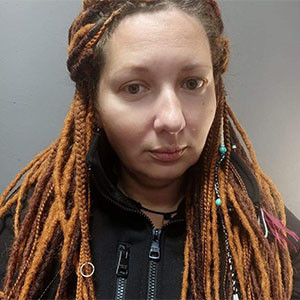
Valeriia Pryhozhyna
Country: Ukraine
Organization: UUAP
Short CV
Valeriia Pryhozhyna. Born on January 28, 1978 in Dnipro, Ukraine.
1996-2000 Dnipro National University, Faculty of Psychology.
1998-2003 Ukrainian Umbrella Association of Psychotherapists, training in Client-Centered Therapy according of C. Rogers.
2000-2008 Leading psychologist of the psychological service of Dnipro National University.
2008-20018 Psychologist of the Regional Center for Education of Disabled People of the National Metallurgical Academy of Ukraine.
From 2003 to 2008 Head of the Dnipro branch of the Ukrainian Union of Psychotherapists.
From 2015 to the present, the head of the Person-Centered Therapy section of the UUAP.
In 2014, one of the founders of the Psychological Crisis Service of the Maidan in Dnipro.
Since 2018, has his own psychological practice.
Since 2022, the founder of the NGO “Crisis Psychological Assistance” in the city of Dnipro and Dnipro region.
Two joint presentations (30 + 30 minutes)
(together with: Yana Gololob)
Title: Wounded Hearts. Relationships that Empower.
It has been over a year since Russia’s full-scale invasion of Ukraine. While our country has been fighting for its integrity and independence since 2014, when Russia annexed our territories. Professionals in our field find themselves caught up in this complex and poignant situation of war and genocide. Entire towns and villages find themselves cut off from the surface of the earth. People are deprived of their habitual lives and their roots. Every day the entire territory of Ukraine is threatened by rocket attacks and bombardments, and people are surviving in this situation.
What we are facing:
- Some 7 million people have either lost their homes or had them partially destroyed.
- Up to 5 million people have been displaced because of the hostilities.
- More than 7 million people have immigrated and are in a difficult process of adaptation.
- Up to 200,000 combatants are serving in the army and are fighting.
A therapist can be useful for all these categories of people, reducing their daily stress and suffering. But what makes our situation unique is that therapists suffer just as much as the rest of our population.
We would like to share with you our experiences and ideas about the wounded healer. Trauma does not define us as individuals. Although it can be painful and have a negative impact on our lives, we can overcome it and find mutual support. The support of others and our own will together helps us to overcome difficulties and achieve a better version of ourselves. Together we can turn our traumas into a source of strength and inspiration.

